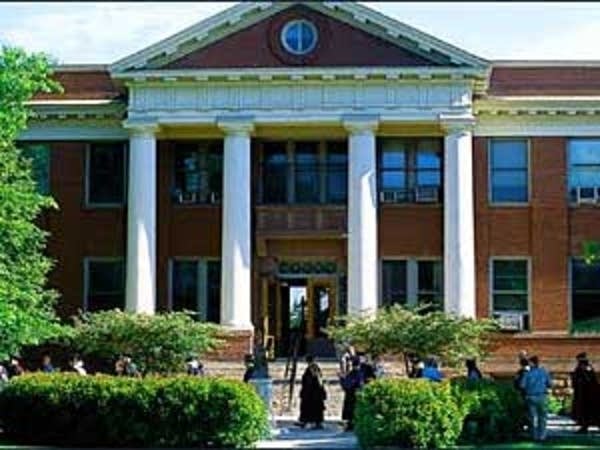Private colleges' Web site challenges traditional rankings

The new site lays out information in categories like costs, graduation rates, enrollment and the demographic makeup of the student body. It's a simple idea coordinated by the National Association of Independent Colleges and Universities. This is the type of basic measurement those shopping for colleges have found elusive, according to the organization's president, David Warren.
"What the parents and prospective students want to do is download a half a dozen institutions of interest, put those documents side by side on the kitchen table and compare them, then go back to the one or two institutions where they have special and further interest."
The association conducted numerous surveys and focus groups to narrow down the type of information people want most, Warren says. The site collects input from each college in about 50 different categories. The data is assembled into concise graphs and pie charts.
The site, called the University and College Accountability Network--or UCAN--is an answer, of sorts, to college guides such as the annual U.S. News and World Report rankings, which frustrate many college administrator, but are popular among aspiring college students.
Create a More Connected Minnesota
MPR News is your trusted resource for the news you need. With your support, MPR News brings accessible, courageous journalism and authentic conversation to everyone - free of paywalls and barriers. Your gift makes a difference.
Thirteen Minnesota institutions have signed onto the UCAN project, including Hamline University in St. Paul. Hamline consistently scores high in the annual U.S. News rankings. The UCAN effort offers some hope for slowing the race for ratings, Hamline president Linda Hanson says.
"What we've been trying to do is strike a balance between the ratings game and good, solid, informative sources of information," she says.
Hanson also appreciates the UCAN format that allows room for what the institutions themselves consider important or unique.
"I think the difference with the UCAN project is it provides many other readily available objective data points, but it also provides opportunities to link to the story of the institution."
The UCAN college measurement tool is also a response to federal government pressure on higher education institutions to be more accountable and transparent. A year ago, U.S. Secretary of Education Margaret Spellings released a report that, among other things, suggested college students take standardized tests as a way to compare one institution to the next. The idea encountered considerable resistance from schools where the principle of academic freedom is fiercely guarded.
The UCAN project alone is not likely to displace either the U.S. News rankings or the pressure for accountability. Rob Oden, president of Carleton College in Northfield, was among the first to add his institution's name to the list of UCAN participants. He says the push for such outside measurements are not likely to diminish.
"I don't think it's going to happen. We in America--basically to our credit--are skeptical of internal, parochial assessments and would like to see a wider array of evidence assessed by third parties and outside, potentially and ideally objective, sources can make of all kinds of things."
Carlton ranks high in the U.S. News guide. But Oden recently joined several other institutions pledging to withhold information from the magazine for the part of the rankings that rate schools according to how their peers view them. The UCAN site is a welcome answer to the more subjective assessments, Oden says.
"It's as important a turning point as has been of late. But other turning points there have been and none of them has succeeded in quieting the rankings."
One of the drawbacks of the UCAN site is it is populated only by private institutions. A group of educators met this week at Yale University to discuss, among other things, a public college information guide to diffuse the influence of rankings that have become so popular with students.
